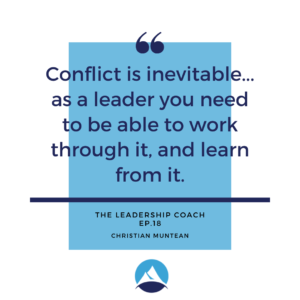How to Avoid the Most Common Leadership Rookie Errors

The Four Typical Approaches for New Leaders
There are many paths to executive leadership. However, when beginning a new role, most people tend to use one of four different approaches. Each of these tends to fall short and ultimately creates more work for the leader later.
Approach #1: There’s a New Sheriff in Town
This phrase is derived from American, or at least Hollywood, lore of the Old West. A town is controlled by the baddies. There is corruption. People don’t feel safe. There’s lots of mud and shooting and people getting thrown out of taverns. Then the new sheriff shows up. Cleans up the town, gets rid of the baddies, the taverns encourage polite card games and the mud dries up.
Sometimes an organization genuinely does need a turnaround. Sometimes that turnaround needs to happen quickly with, can I say, aggressiveness. Most of the time that’s not true. Usually, the “New Sheriff” approach is a rookie error. A new leader, often an executive, who recognizes that real change is needed. Or sometimes, just has a strong, new vision for the future. But our new sheriff doesn’t yet know how to moderate his or her approach to the actual circumstances.
As a result, people leave, resist or get passive. It’s surprising to me how commonly this is a tolerated cost of business. Particularly high turnover. In most cases, just expecting high turnover is sloppy and irresponsible. An organization is losing too much in terms of training, institutional knowledge, and relationships. Some turnover is usually unavoidable. High turnover means no one wants to work in the environment they expect you’ll create.
The result is that it’s not uncommon for the new sheriff to get completely derailed from accomplishing their clean-up or vision building. They get stuck in having to rebuild the “town” that they shot up and tore apart.
Solution: Be cautious and humble before labeling opposition, confusion, or resistance as a sign of “baddies.” Recognize the past success, existing strengths, values, and culture of individuals and the organization. Even when a turnaround is needed, you’ll be more effective if you are able to build on strengths.
Approach #2: Everybody’s Buddy
Many new leaders want to be friends. Maybe they were promoted up and are now leading people who were peers. Maybe they are new to town or the organization and genuinely are looking for relationships.
Personally, I believe emotional intelligence is one of the most important skill sets for a leader. Research supports this. However, being a “buddy” doesn’t translate into effective leadership. The skills of being a good listener, respecting others, being approachable and empathic can be retained along with real differences in role and responsibility.
Trying to be a buddy might make sense to the new leader – but it is confusing to everyone else. “I’m just one of the guys. Except I sign your paycheck, you are accountable to me, and I can fire you.” Typically, this leader will never actually hold people accountable (never step into leadership). Or, after their first one or two uncomfortable occasions of needing to hold others to account, they’ll give up on friendliness or reasonableness altogether and just harden up. Neither approach is conducive to an enjoyable and effective workplace.
It is far more important to earn the respect of those you lead as opposed to earning the “like.” Sometimes you should choose between the two. Always err towards actions that earn the respect – not like – of your people. Most people would rather have a highly competent, respectful leader who brings everyone to a high level of performance and workplace harmony than a good buddy who muddles and dithers on tough decisions.
Solution: Learn about emotional intelligence or resonant leadership. In short, the abilities to connect with, understand, and value other people – while leading. Accept the very real differences in your role. Having more power or ability than others is a fact of life. Some have more. Some have less. Denying it helps no one. Using it well while treating others with respect and value is of great help.
Approach #3: Toilet Bowl Cleaners
Some new leaders make the mistake of wanting to stay in the trenches. I’ve often heard the statement, “I’m not afraid to roll up my sleeves and clean out the toilet bowls.” And they often mean it. They might not be referring to a toilet bowl. They might be referring to other roles or responsibilities in the company that could be given away. The willingness and the attitude may be great. But if a leader is doing this often, it’s nearly always an indicator of a problem.
Sometimes this is a misplaced perception of equity. Sometimes they want to deemphasize the difference between their role and others. Sometimes it is a control issue, “No one does this as well as I.” Sometimes it is an inability to let go of work that was enjoyed or feels comfortable.
Great leaders are willing to do ‘whatever it takes’ to ensure the success of the organization. They stay in touch with the front-lines. They aren’t “too important.” But, in nearly all cases, it is a poor use of a leader’s time to clean proverbial toilet bowls. As a leader, as someone with your unique background and experience, there are some things that only you can do to help serve the organization. You are in a unique position to create a workplace that has more of a future, that is healthier, and can offer more possibilities to others than before.
In other words, sometimes it is a disservice to clean the toilet bowl.
Almost anyone can figure out and manage the authority to clean a toilet. Very few people in your organization have the ability to generate rapid growth, to secure the future, to save jobs, to create new opportunities and career paths.
I often ask clients, “If you are the only one able to land a multi-million-dollar project/acquire a new business/launch a new service why are you spending time on something you can pay someone $10 an hour to do? Or even $100 an hour?”
Solution: Don’t be pennywise and pound foolish with your money or in your leadership. Learn to see how your choices uniquely create or block opportunities for others. It is far better to have built a company that is able to create jobs or pay for a janitorial service, than a company who is trying to save pennies by doing it in-house.
Approach #4: The Watchful Enigma
Some new leaders hold back. They watch. They listen. They observe. And no one knows they are thinking. For a very long time. They’ll frequently tell me, “I’m new here. I’m still trying to learn how things work.” I’ll ask how long they’ve been in the position. “Oh, I’ve only been here about a year.”
That leader may not feel like “The Enigma.” She might feel busy with all her work. He might feel like he can’t give confident answers when he still doesn’t know everything. She might feel like, “They’ve all been here longer than me.”
But everyone else is trying to figure out where you are leading, what your expectations are and decisions that can be acted on. It is good to be a learner and to be open. But if you are engaged in genuine leadership – you will often feel some element of, “I’m not quite sure what the answer is here.” Leaders lead into that. Good leaders know how to lead into an unknown and consistently get people through to the other side. Great leaders define the unknown and help people grow as a result of having gone through it.
Solution: Build the leadership ability to “cast vision.” That’s the ability to look into the unknown, see or sense what might be on the other side, and describe it so that others are able and willing to follow you there.
View leadership as an essay, not a math problem. You can correct and adjust on the go. Become comfortable making decisions when you don’t have all the information. It is often of greater value to be able to make a reasonable decision fast than exactly the right decision slowly. The reason for this is that there are very few “right” decisions out there, in the context of leadership. However, there is a whole range of “better” or “worse” decisions. Nearly all of which can be adjusted, if you respond quickly.
Starting Well
If you recognize any of these tendencies in yourself, don’t worry about it. These are very common mistakes in new leadership positions. In most cases, they are pretty easy to correct as well.
Take good care,
Christian
Further reading:
Six Mistakes that Successful Leaders Make
Seven Leadership Lessons from The Garage
Vision Building Sprints
If you or your team are wrestling with defining your vision and would like help, I’m offering the opportunity for a “Vision Sprint”. This is a dynamic calibrating exercise. We will tightly dial in on your vision for the year and the key steps you need to take to get there. I’m offering either individual sessions ($2500) or team sessions ($4000).
Contact me at christian@christianmuntean.com if interested in learning more or setting up a time.
The Successful New CEO – FREE BOOK OFFER
As an executive coach, I’ve found that the experiences for new executives (or experienced executives in new roles) tend to touch on familiar themes. No one’s situation is the same. But there are common principles that, when followed, do guide executives to success. I introduce those core principles in my new book, The Successful New CEO. I’d like to give you a free copy (just pay shipping)!
situation is the same. But there are common principles that, when followed, do guide executives to success. I introduce those core principles in my new book, The Successful New CEO. I’d like to give you a free copy (just pay shipping)!
The book is divided into four parts:
- Becoming an Executive: Leaders can only lead out of who they are. How do you become the kind of person who successfully and gracefully inhabits this role?
- Seven Essential Executive Skills: The skills that earned you this new role may not be the ones that you need in the role. What are the key leadership skills that become even more important at the executive level?
- Leading Your Leadership Team: More than likely, you’ll be leading other leaders. How do you lead a confident, effective leader? How do you build a team out of leaders?
- First Things: Where do you start? How do you quickly build credibility and engagement? What is too fast or too slow?
The goal of The Successful New CEO is to help you quickly gain the confidence of your team, successfully address the issues you will discover, score early wins, and set a course for a fruitful future.
If you’d like to see how this book will benefit you or someone you know, I’d like to make it available to you for free! Click Here.
Find the value of your company with my free assessment tool: The Value Builder System
The Value Builder System™ is a 13-minute online questionnaire that evaluates your business on the eight factors that contribute more to its attractiveness and value. These factors are scored on a scale of 1-100. Businesses that score over 80 are likely to command 70%-100% higher value than others.
In my podcast, THE LEADERSHIP COACH, we explore effective, high impact and enjoyable leadership. We talk about personal development and the attributes that all effective leaders possess. I interview other leadership experts who share their knowledge and tips to help you build the confidence to lead and learn the habits of good decision-making.
Opportunities
Free Resource: How To Accomplish More Without Doing More is a workbook I created to walk leaders through a process of helping you own your calendar, liberate your time, and still get more done. Download it for free!
Executive and Leadership Coaching: Do you feel overwhelmed? Are you not getting the results you expect from the effort you are putting in? Do you find yourself facing similar challenges time and time again? Would you like to change specific ways of relating or reacting? If you would like to experience predictable, measurable growth Contact me.
Profitable Exit Strategy Workshop: Are you a business owner or partner? Are you over 55? Are you starting to think about exiting your business or active management in the next 3-5 years?
- Are you curious about what your business might be worth?
- Would you like to discover the specific steps you need to take to increase its value and become highly attractive to a buyer?
- Are you planning on handing it over to family or employees and you want to ensure long-term success?
If so, contact me now
Categories
Get Christian’s Newest Book: Train to Lead

Download my free 10-page eBook:
How To Accomplish More Without Doing More:
Eight Proven Strategies To Change Your Life
Discover how to save eight hours during your workweek-even if you're too busy to even think about it. The resource every maxed out executive needs.
